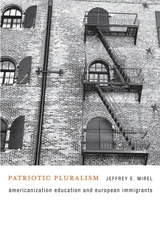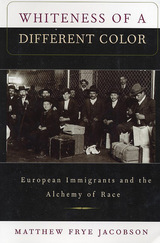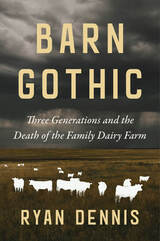2 books about European Immigrants

Patriotic Pluralism
Americanization Education and European Immigrants
Jeffrey E. Mirel
Harvard University Press, 2010
In this book, leading historian of education Jeffrey E. Mirel retells a story we think we know, in which public schools forced a draconian Americanization on the great waves of immigration of a century ago. Ranging from the 1890s through the World War II years, Mirel argues that Americanization was a far more nuanced and negotiated process from the start, much shaped by immigrants themselves.Drawing from detailed descriptions of Americanization programs for both schoolchildren and adults in three cities (Chicago, Cleveland, and Detroit) and from extensive analysis of foreign-language newspapers, Mirel shows how immigrants confronted different kinds of Americanization. When native-born citizens contemptuously tried to force them to forsake their home religions, languages, or histories, immigrants pushed back strongly. While they passionately embraced key aspects of Americanization—the English language, American history, democratic political ideas, and citizenship—they also found in American democracy a defense of their cultural differences. In seeing no conflict between their sense of themselves as Italians, or Germans, or Poles, and Americans, they helped to create a new and inclusive vision of this country.Mirel vividly retells the epic story of one of the great achievements of American education, which has profound implications for the Americanization of immigrants today.
[more]

Whiteness of a Different Color
European Immigrants and the Alchemy of Race
Matthew Frye Jacobson
Harvard University Press, 1998
America’s racial odyssey is the subject of this remarkable work of historical imagination. Matthew Frye Jacobson argues that race resides not in nature but in the contingencies of politics and culture. In ever-changing racial categories we glimpse the competing theories of history and collective destiny by which power has been organized and contested in the United States. Capturing the excitement of the new field of “whiteness studies” and linking it to traditional historical inquiry, Jacobson shows that in this nation of immigrants “race” has been at the core of civic assimilation: ethnic minorities in becoming American were re-racialized to become Caucasian. He provides a counter-history of how nationality groups such as the Irish or Greeks became Americans as racial groups like Celts or Mediterraneans became Caucasian.Jacobson tracks race as a conception and perception, emphasizing the importance of knowing not only how we label one another but also how we see one another, and how that racialized vision has largely been transformed in this century. The stages of racial formation—race as formed in conquest, enslavement, imperialism, segregation, and labor migration—are all part of the complex, and now counterintuitive, history of race. Whiteness of a Different Color traces the fluidity of racial categories from an immense body of research in literature, popular culture, politics, society, ethnology, anthropology, cartoons, and legal history, including sensational trials like the Leo Frank case and the Draft Riots of 1863.
[more]
READERS
Browse our collection.
PUBLISHERS
See BiblioVault's publisher services.
STUDENT SERVICES
Files for college accessibility offices.
UChicago Accessibility Resources
home | accessibility | search | about | contact us
BiblioVault ® 2001 - 2025
The University of Chicago Press









